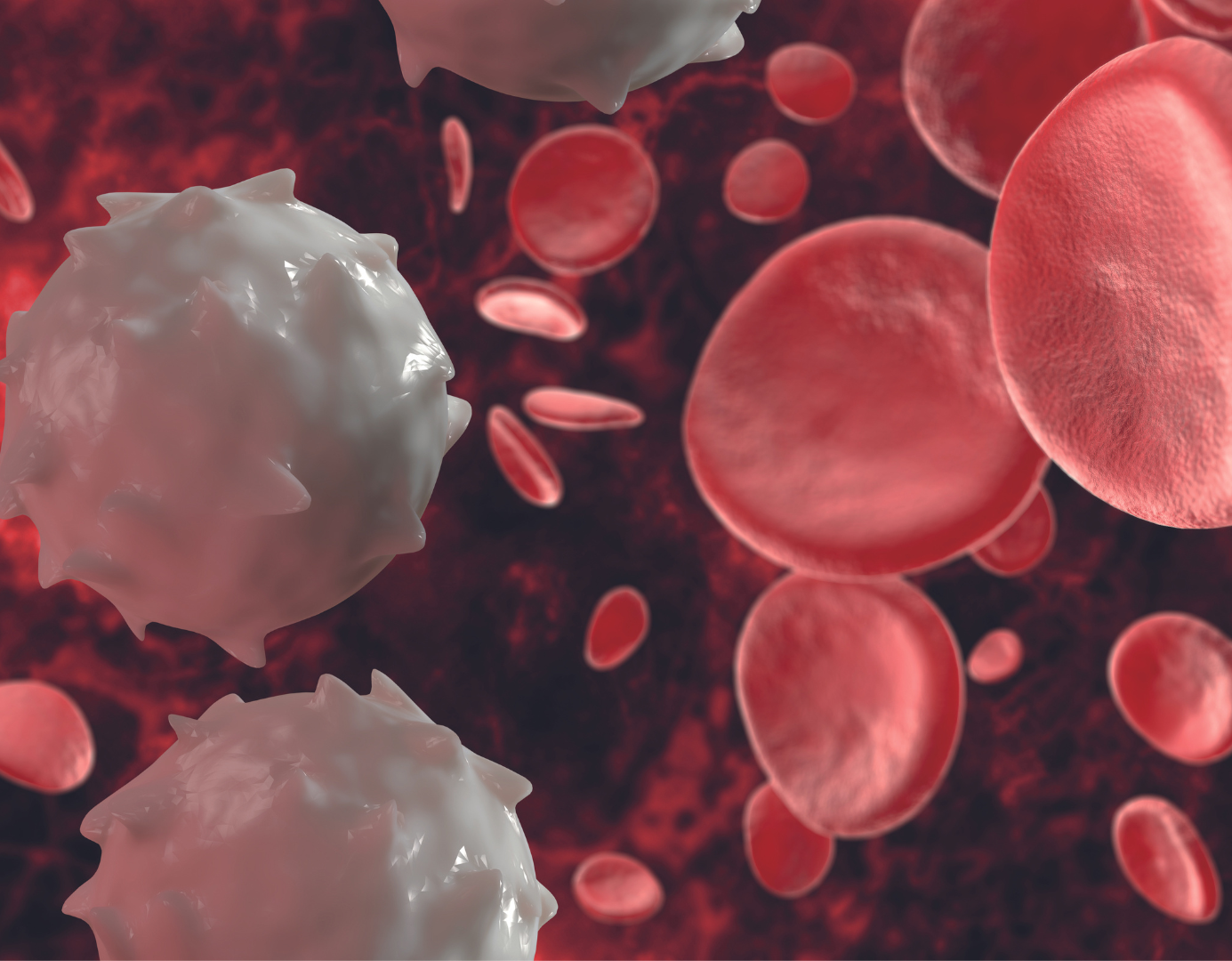Why is lymphoma a blood cancer?
Published on: 3 April 2024Explaining why lymphomas are classed as a type of blood cancer.

Lymphomas are classed as blood cancers because they develop from a type of blood cell. They develop when a lymphocyte - a type of white blood cell - grows out of control. Lymphocytes are an important part of your immune system. They help you build up immunity to infections you’ve already had, to stop you getting them again.
Because all lymphomas develop from lymphocytes, they are officially classed as blood cancers – even though most types of lymphoma form lumps in your body and don’t affect your bloodstream.
Lymphocytes travel around your body in your lymphatic system. If you have lymphoma, abnormal lymphocytes build up, usually in your lymph nodes. This is why the most common symptom of lymphoma is swollen lymph nodes.
Although lymphoma is the most common blood cancer - and the fifth most common type of cancer in the UK - there are two other types of blood cancer: myeloma and leukaemia. Some of the sbu-types of these conditions have similar names and develop from the same blood cells. Understanding the difference between these types of cancer can be confusing.
Myeloma develops from particular types of white blood cells called plasma cells. Plasma cells make antibodies, which stick to proteins that don’t belong in your body (such as proteins made by viruses or bacteria) to help your immune system recognise them and get rid of them. If you have myeloma, abnormal plasma cells develop in your bone marrow in multiple sites, which is why it’s sometimes called ‘multiple’ myeloma.
Leukaemia is probably what many people think of when they hear the term ‘blood cancer’. Leukaemias develop from white blood cells. These are part of your body’s immune system and help fight infections by attacking bacteria, viruses and germs that invade your body. There are lots of different types of white blood cell – and lots of different types of leukaemia, depending on the exact type of white blood cell they develop from and how quickly they grow. ‘Lymphocytic’ leukaemias develop from lymphocytes (the same cells that are abnormal in lymphomas). However, the abnormal cells in leukaemia mainly affect your bone marrow and your bloodstream. Leukaemia can spread to your lymphatic system, but it doesn’t start there.
Where does the word lymphoma come from? 'Lymph' comes from the Latin 'lympha' meaning pure water, and refers to the colourless water-like fluid in our bodies that contains white blood cells as part of our immune system. The suffix '-oma' means a growth or tumour.
This explainer was included in the Spring issue of Lymphoma Matters magazine. Sign up to receive your copy three times a year.
